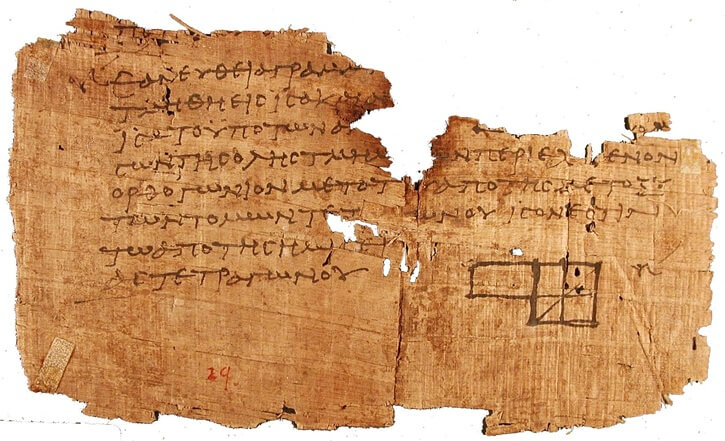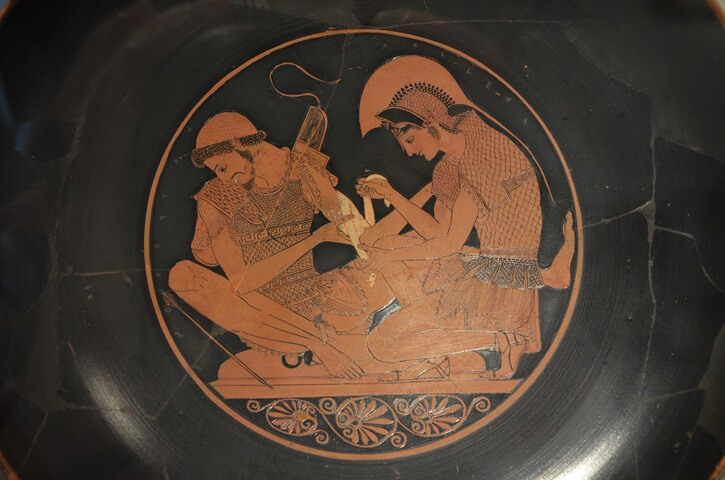Classical Philosophy
Classical philosophy studies the fundamental problems concerning human existence through the eyes of our intellectual ancestors. Many thinkers from Classical times were pioneers of our modern philosophical and scientific ideas. The earliest beginnings of philosophy are traced back to the sixth century B.C.E., when the first scientists of Western history, the Pre-Socratics – among them Thales, Heraclitus and Parmenides – advanced revolutionary theories concerning the natural world, human knowledge and humans’ relationship with the gods. Some centuries later, Socrates ignited an intellectual revolution that would challenge traditional notions of morality and value forever. Plato, who had studied under Socrates, and Plato’s own student Aristotle, expanded the discipline of philosophy and forked out the path of Western intellectual thought with their discussions of logic, ethics, poetry, myth, politics, physics, and metaphysics. Their work was continued, systematized and amplified by Stoic, Epicurean, and Skeptical thinkers. It had an important impact on prominent figures of Late Antiquity such as Marcus Aurelius, Plotinus, Porphyry, and greatly influenced the early Church Fathers, most notably St. Augustine. Studying the Classics will give students with an interest in ancient philosophy a particularly thorough grasp of the broader linguistic, literary, historical, and cultural background of philosophical issues and problems.

History of Science
The History of Science is an academic discipline of great scope, covering subjects such as technology, mathematics, medicine, and astronomy. Studying these disciplines through a Classical lens shows how closely the sciences are related to the humanities, and how all of our various areas of specialization fit together into a single investigation of the world and our experiences in it. Students will find answers to important questions, such as the early origins of the different scientific disciplines and their impact on culture and society, and they will also find important questions like what does it mean to exist, what are the fundamental building blocks of the world, and what does it mean to lead a good life.
The ancient Greeks were the first mathematicians and scientists of the West. Thinkers such as Thales, Anaximander, Pythagoras and Empedocles attempted to make sense of the world by studying the evidence they found in it. Anaximander proposed that the earth was a solitary body, floating free and unsupported in the universe, and produced one of the first maps of the world. Empedocles was among the first to believe that the world consisted of diverse material elements acted upon by forces of attraction and repulsion. The atomic theory of matter begins with the Greeks. Euclid remains one of the most influential mathematicians of all time. His contemporary Archimedes was a famous inventor and is also credited with discovering a geometrical technique which anticipated calculus and the fact that the surface and volume of a sphere is 2/3 that of its circumscribing cylinder. Through early astronomy, the Greeks developed the idea of mathematized science. In the field of medicine, they began with case histories and folk remedies, and ended up with an understanding of the nerves, the ability to patch up wounded gladiators, and even the ability to remove cataracts with eye surgery. They invented the first steam engine, vending machine, automatic doors, and more. And they sustained glorious cities with over a million inhabitants without using electricity, fossil fuels, gunpowder or nuclear fission as sources of energy.
The Renaissance was an attempt to give a ‘new birth’ to the classical world following lapses in the Medieval period, and the modern drive for progress has often been an effort to match or surpass the achievements of ancient Greece and Rome. By studying the History of Science in the Classical world, we come to understand the various disciplines through their historical and cultural contexts, and come to see how our fragmented scientific investigations form part of an integrated whole.

Related Faculty
- Andrew Wein
- Christian Wildberg
- Jacques A. Bromberg
- James G. Lennox
- Jennifer Whiting
- John Newell
- Sara Magrin
Publications
- Cynicism: Or, Philosophy as a Way of Strife
- Neoplatonism
- Aristóxeno de Tarento, Os Elementos de Harmonia (Aristoxenus of Tarentum, The Elements of Harmonics) [First Translation into Portuguese]
- Probabilities Involving Directional Similarity
- Finding Ithaca, and Sense in Parmenides B1.3: The Homeric Meaning of Εἰδώς
- Lucilius Philosophos? Manipulation of Greek Philosophy in the Early Roman Satires
- Myth and Argument in Plato's Phaedo
- Greek Tragedy and the Socratic Tradition
- REVIEW: A New Text of Apuleius: The Lost Third Book of the “De Platone.” By Justin A. Stover
- A Sage on the Stage: Socrates and Athenian Old Comedy
- The Will and its Freedom: Epictetus and Simplicius on what is up to us
- Proclus of Athens: A Life
